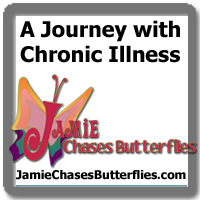by Summer D Clemenson | Apr 28, 2020 | Education, Food, Fuel Your Wellness
FODMAP stands for Fermentable Oligo-, Di-, Mono-saccharides and Polyols. All these scientific terms are used to describe groups of fermentable carbohydrates that commonly trigger bloating, gas and stomach pain in people with sensitivities.
The main dietary sources of the four groups of FODMAPs include:
- Oligosaccharides: Wheat, rye, legumes and various fruits and vegetables, such as garlic and onions.
- Disaccharides: Milk, yogurt and soft cheese. Lactose is the main carbohydrate.
- Monosaccharides: Various fruit including figs and mangos, and sweeteners such as honey and agave nectar. Fructose is the main carb.
- Polyols: Certain fruits and vegetables including blackberries and lychee, as well as some low-calorie sweeteners like those found in sugar-free gum.
(more…)
by Summer D Clemenson | Apr 20, 2020 | Education, Fuel Your Wellness
Cannabis can be a very powerful tool in use as a pain reliever for those suffering with chronic pain and illness. Cannabis works alongside our nervous system to block certain pain receptors. This is key to living a good life with chronic pain. It may not be the way for everyone, but it was a game changer for me.
What is our Nervous System?
Our nervous system is a complex collection of nerves and specialized cells known as neurons. These neurons send signals between different parts of our body, telling them what to do. Our nervous system is like our body’s electrical wiring. (more…)
by Summer D Clemenson | Apr 16, 2020 | Education, Fuel Your Wellness
What is Talcum Powder
Talcum Powder is made from talc. Talc is a mineral that contains magnesium, silicon and oxygen. In its natural state, some talc also contains asbestos. Talc that has been purified from asbestos is generally what is used in consumer products.
The reason talcum powder is used is that it absorbs moisture well and helps cut down on friction so it is good for helping to keep skin dry and prevent rashes; which is why it is often found in baby powder and adult body and facial powders. (more…)
by Summer D Clemenson | Apr 10, 2020 | Fuel Your Wellness
Lupus is a Chronic Autoimmune Disease that occurs when your body’s immune system attacks your own tissues and organs. Chronic means that is long-term and there is no cure. Lupus can be either localized or systemic. Systemic means that it relates to an entire part of the body and not just one spot. The inflammation that Lupus causes can effect several body systems including: heart and lungs, blood cells, kidney, skin and joints.
Inflammation is caused when your immune system fights an infection or injury in our body. Lupus tricks your body into thinking that healthy tissues are injured or infected. This causes symptoms like swelling and pain because of cellular break down. (more…)
by Summer D Clemenson | Apr 8, 2020 | Fuel Your Wellness
IBS stands for Irritable Bowel Syndrome. IBS is a very common disorder that affects the large intestine. IBS affects 3-20% of the US population, depending on ethnicity, gender, communication abilities, education, financial and coexisting medical conditions. Luckily IBS doesn’t cause changes in bowel tissue or increase a person’s risk of colorectal cancer, yet in rare cases IBS can cause intestinal damage.
Other names for Irritable Bowel Syndrome are: spastic colon, irritable colon, mucous colitis, and spastic colitis. IBS is a different condition than Inflammatory Bowel Disease in that a disease is a separate diagnosis with a treatment, and a syndrome is a collection of ongoing symptoms that don’t necessarily have one cause or cure. (more…)
by Summer D Clemenson | Mar 30, 2020 | Fuel Your Wellness, Wellness
If you are experiencing a
Mental Health Crisis
and you are located in
Cowlitz County
please call:
Cowlitz County
Mental Health Crisis Line:
(800) 803-8833 or (360) 425-6064
Numbers for surrounding counties are located at the bottom of this article
(more…)
by Summer D Clemenson | Mar 26, 2020 | Fuel Your Wellness
Amino acids are organic compounds composed of nitrogen, carbon, hydrogen, oxygen and variable side chain groups. Amino Acids are referred to as the building blocks of protein that conduct many vital processes like syntheses of hormones and neurotransmitters. Your body needs 20 different amino acids to grow and function properly; 9 of those amino acids are referred to as essential amino acids and they can only be obtained through our diet. One essential amino acid is called phenylalanine…
Although they play a role in the main topic of this article, amino acids are not the main focus. This article was written to tell you about Phenylketonuria. (more…)
by Summer D Clemenson | Mar 24, 2020 | Fuel Your Wellness, Wellness
March 24, 2020 is American Diabetes Association Alert Day! Every 4th Tuesday in March it is the hope of many that people who are at risk developing of Type 2 Diabetes will learn what they need to know to avoid or manage this disease.
Diabetes is a chronic illness where your blood sugar is too high because your body is not allowing the glucose in the food you eat to properly enter your cells, to be used for energy. Insulin is a naturally occurring hormone made by your pancreas that helps this process. In people who are Diabetic, sometimes their body does not make enough insulin or their bodies are insulin resistant so the sugar in your body stays in your blood instead of being burned properly. (more…)
by Summer D Clemenson | Mar 19, 2020 | Fuel Your Wellness, Wellness
Self-Care is a vital part of life that I think many of us have little to no knowledge of. I know I didn’t 10 years ago. Just like many other people, it took me getting really sick to make me start learning. I don’t want this to happen to you so here I am putting together an article that might inspire you to make healthy choices for your mind, body and spirit.
Every person is different and with that in mind, you have to take time to learn what you need to be at full capacity. What someone else needs might be close to what you need, but not necessarily your ideal. We can do this by really paying attention to our bodies to learning how much and what kind of stress we can handle, exactly how many hours of sleep we need during times of health and when we need to disconnect from the world to catch our breath and reset our mind, body and spirit. (more…)
by Summer D Clemenson | Mar 17, 2020 | Fuel Your Wellness
This article was last updated on October 25, 2020
COVID-19 is part of a large family of viruses called coronaviruses that cause illness ranging from the common cold and to more severe diseases like: Middle East Respiratory Syndrome (MERS-CoV) and SARS-CoV.
Wellness Works NW does not own Forever Fit Gym, if you have questions please contact the gym at 360-425-5611.
(more…)
by Summer D Clemenson | Mar 5, 2020 | Fuel Your Wellness
March is National Kidney Month
National Kidney Month was started to bring awareness to kidney disease. Often times people don’t know they have kidney disease until their kidneys are damaged so it is important to know if you should be tested.
What Do Kidneys Do?
(more…)
by Summer D Clemenson | Feb 27, 2020 | Fuel Your Wellness
February is Kids ENT Health Month and since pediatric ear, nose and throat disorders are still some of the most common reasons children visit the doctor we thought we should tell you about it.
Common ENT Illnesses in Children
- Ear infection is the number one reason children go to the doctor.
- Acute Otitis Media is also know as a middle ear infection.
- Tonsillitis is inflammation of the tonsils, usually caused by strep throat or the common cold.
- Sinusitis is inflammation in the sinuses, usually caused by the common cold or allergy and can include upper respiratory or throat infections.
(more…)
by Summer D Clemenson | Feb 20, 2020 | Fuel Your Wellness
February is National Children’s Dental Care Month. This event is meant to bring awareness that for 75 years water fluoridation has helped children stay hydrated while preventing cavities. Thousands of dedication professionals, healthcare providers, and educators want to promote good oral health to children, their caregivers, teachers and the general public.
Interesting Children’s Dental Care Facts
(more…)
by Summer D Clemenson | Feb 14, 2020 | Fuel Your Wellness
February is Teen Dating Violence Awareness Month. This national effort is meant to bring awareness regarding abuse in teen and 20-something relationships. Because wellness also includes our mental and physical safety we want to share some information about this topic because EVERYONE deserves a safe and health relationship.
The National Domestic Violence Hotline
1-866-799-SAFE (7233)
(more…)
by Summer D Clemenson | Feb 7, 2020 | Fuel Your Wellness
National Toothache Day is Sunday February 9, 2020.
Toothaches can make life pretty unbearable. They can affect your ability to eat, talk, sleep, travel or even kiss your loved ones. Did you know the first bristled toothbrush was invented in 1498? In China people cleaned their teeth with a bristled brush with a handle made of either bamboo or bone. Interesting fact, huh? National Toothache Day was first celebrated in the early 2000’s. No one really remembers who started it but since mouth care is vital to good overall wellness, we though we would share with you some helpful information on how to take care of your teeth. (more…)
by Summer D Clemenson | Feb 6, 2020 | Fuel Your Wellness
February is American Heart Month and because we love you we will be sharing several topics related to heart health this month. In this article I will be sharing with you some information about Heart Defects.
According to the American Heart Association, about 9 out of every 1,000 babies born in the United States have a congenital heart defect.
Congenital heart defects are conditions that people are born with when the heart doesn’t develop normally before birth that effect the structure of the heart. In fact congenital heart defects are the most common of all birth defects. They might involve the walls or valves of the heart or the arteries and veins near the heart. These defects might disrupt the flow of blood through the heart by slowing down the flow of blood, making the blood go in the wrong direction or to the wrong place or completely block blood flow. (more…)
by Summer D Clemenson | Jan 31, 2020 | Food, Fuel Your Wellness
As you travel your path to wellness you will want to become more food conscious. In today’s society is impossible to completely cut out eating out. Americans spend almost half of their food budget on restaurant experiences. Overall restaurant foods are higher in calories, salt and fat than foods created at home; this is true even if the restaurant claims they have made their menu more healthy. A lot of this is because restaurant portion sizes are so much larger than what actual serving sizes should be. We do recommend that spend more time exploring foods at home but when you do go out there are healthy swaps you can make to help you feel better and continue to make your wellness goals. (more…)
by Summer D Clemenson | Jan 24, 2020 | Fuel Your Wellness
Over 50% of all Americans take one or more dietary supplements either on occasion or daily. Although not all people require supplements which generally include vitamins, minerals, herbal products (botanicals), and enzymes, some people can use these products to make sure they get enough essential nutrients and maintain or improve their overall well-being.
What are Botanicals?
A botanical is a plant or part of plant that is found to have medicinal or therapeutic properties. Herbs are considered botanicals. (more…)
by Summer D Clemenson | Jan 20, 2020 | Fuel Your Wellness
What is Testosterone?
Testosterone is a hormone that is created in males & females in humans and some animals. Testosterone is vital to sex drive & sperm production but it also affects bone density, muscle mass, how our bodies store fat as well as facial & body hair. Testosterone affects red blood cell production and even mood stability. Testosterone is created in the testicles in males and, in much smaller amounts, in the ovaries of females after the pituitary gland sends a signaling hormone to induce testosterone production. (more…)
by Summer D Clemenson | May 21, 2019 | Food, Fuel Your Wellness
Karen and I are so blessed to have people in our lives who care about us and help us while we are growing Karen’s dream of a successful business. The other day one of our clients gave us a small roast and Karen asked me if I could figure out how to make it stretch for about 4 days. I searched the list of ingredients I knew we had in my head, and I told her I would make soup.
Soup is something I ate a lot of growing up. But it was usually out of the can and I never really liked it. I remember 2 times my mom made soup from scratch and it was amazing! My mom was a single mother and she worked a lot. She also doesn’t really enjoy cooking so that soup was like a miracle to me. Since I was the oldest I was stuck with feeding my sisters and I wasn’t very good at it; I was always more creative than my ingredients. But Mom really loved bean with bacon soup and chili from the can and that was probably what my sisters would have preferred when I cooked too. (more…)
by Summer D Clemenson | Apr 17, 2018 | Fuel Your Wellness, Wellness
You probably wonder what all the hype is regarding Probiotic Supplements, but did you know that 70% of our body’s immune system lives in our digestive tract? Poor eating habits, high stress and chronic illness can cause our immune system to become irregular and even disrupt cellular processes. People who live with chronic illness, especially auto-immune disorders need to pay special attention to their digestive health.
Inside our entire digestive system, mostly our intestines and colon, there are 300 to 500 different kinds of bacteria that contain nearly 2 million genes. These bacteria live next to viruses and fungi, making up our gut microbiota. To maintain our health, 90% of the bacteria in our intestines should be good bacteria. (more…)
by Summer D Clemenson | Dec 7, 2017 | Fuel Your Wellness
I wasn’t planning for The Importance of Self-Care to be the next article I write for Wellness Works NW; I knew a blog about self-care was brewing, but it wasn’t until Monday afternoon that I understood the timing of this article. You see, Veda is here. If you haven’t read my article about Veda, I will let you know that is what I call the depression that overcomes me at times and tends to push me in directions I don’t want to go. At some point I decided to name her something so that I wasn’t getting mad at myself for my feelings that can be really opposite of what I want to be experiencing. When Veda comes, she makes me VERY tired. So fatigued that it can feel impossible to do anything other than lie in bed and feel bad. It was all I could do to get out of the car and go to bed after church on Sunday and even my little nephew could not get me to fully wake up, and I REALLY love him. (more…)


 Please wait...
Please wait...

